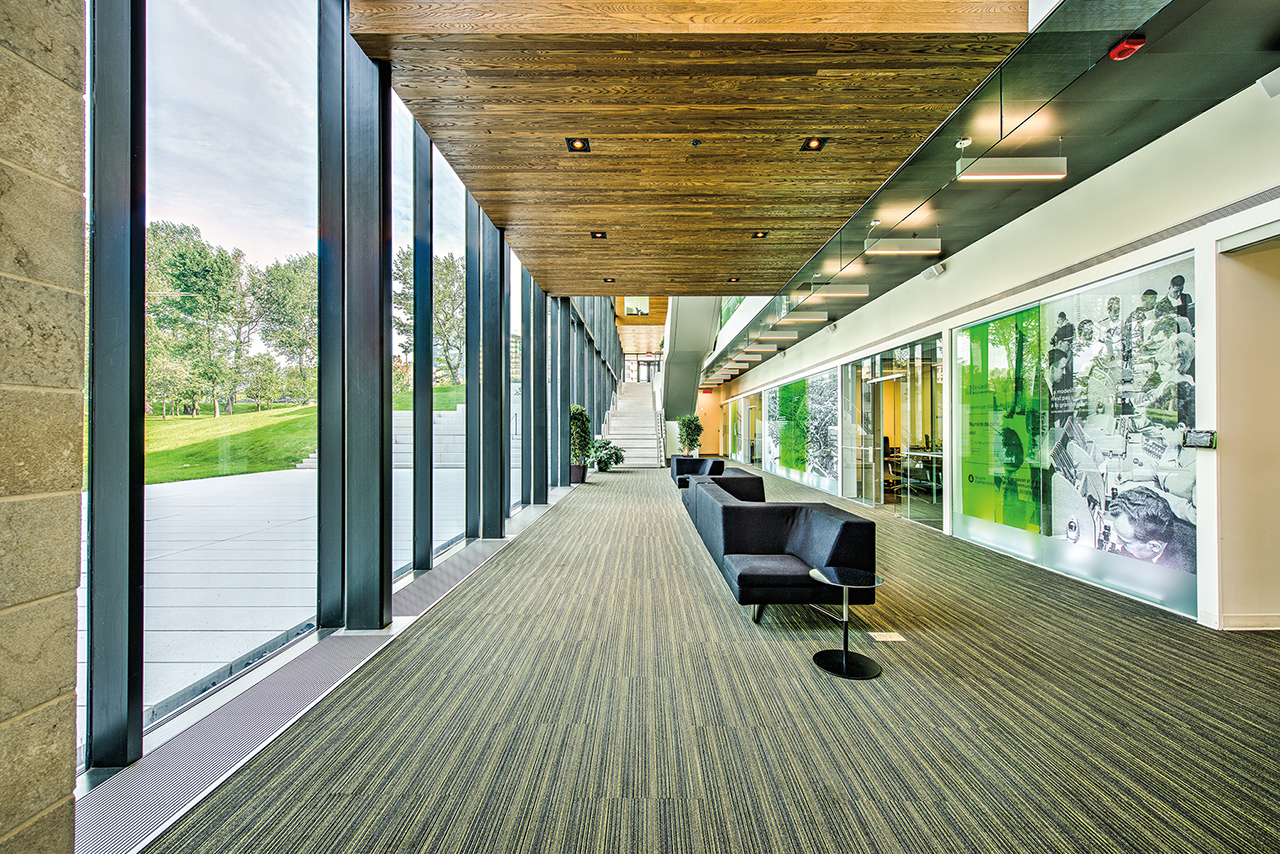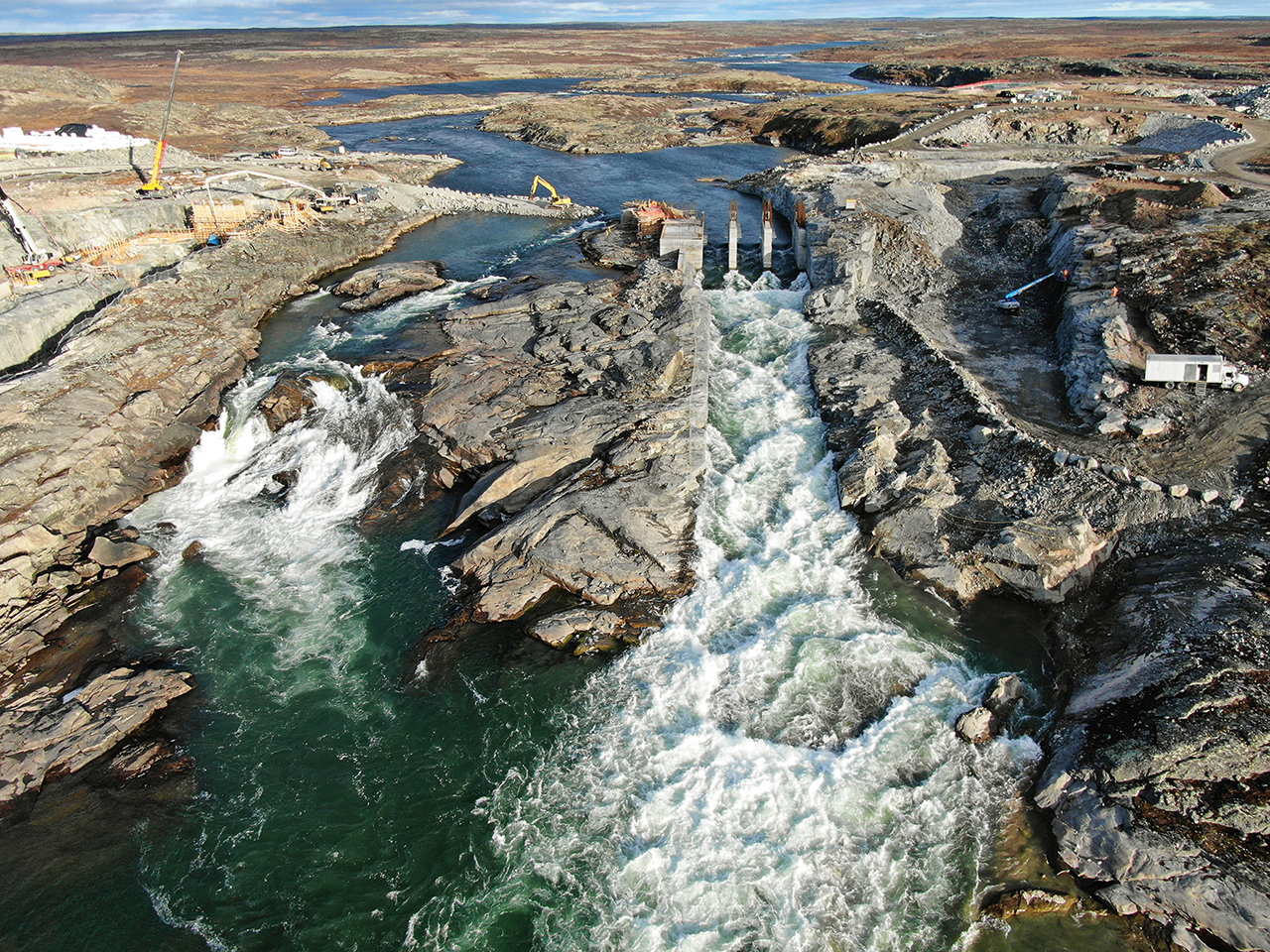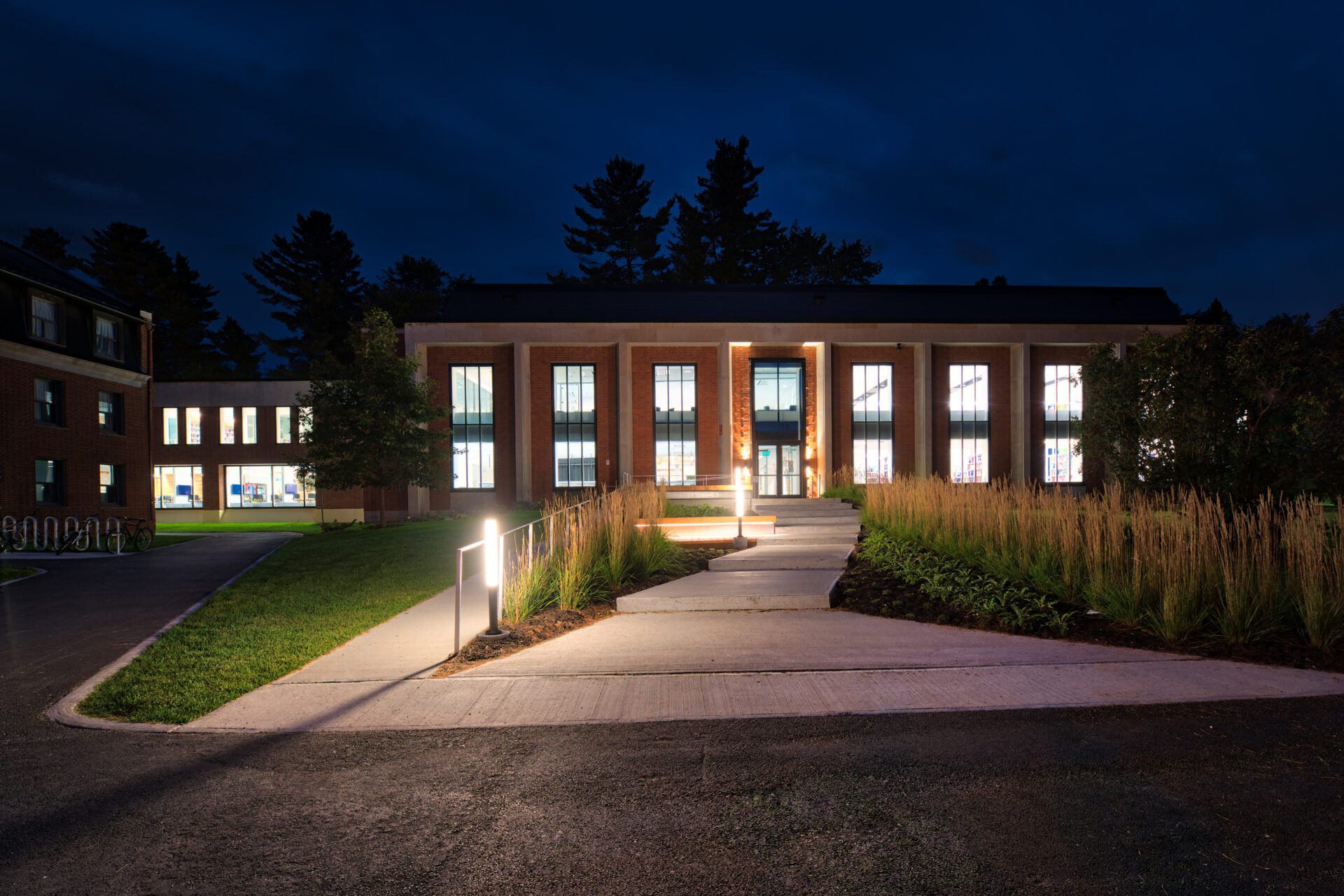Responsible engineering is built on innovation, integrity, passion and people. People at the center of engineering. These few words sum up our values and our corporate culture. At CIMA+, we put the talent and know-how of our passionate people at the service of our clients and the community. We made this commitment keeping in mind the raison d'être of engineering: to innovate and improve the quality of life around us.
A culture of innovation for sustainable development

Sustainability is an important driver of innovation in engineering projects, and innovation is at the heart of CIMA+'s corporate culture.
Our teams are recognized for their ability to go beyond conventional solutions and push the boundaries of what is possible to increase the environmental performance of projects. Their vision, boldness and ingenuity have been recognized and recognized with numerous awards and mentions over the years in all fields of engineering and related sciences.
CIMA+ takes a proactive approach that stimulates innovation from the earliest stages of a project, with the aim of ensuring that it will have a positive impact on the environment and society. In addition, since any inspiration is likely to become the great idea of tomorrow, we energize internally the proposal of new ideas by our employees. We have deployed an enterprise-wide innovation strategy that facilitates the collection of suggestions and centralizes them. They are all analyzed by a dedicated committee and several are selected each year to be developed. Many of them are directly related to sustainable development.
In 2020, CIMA+ developed an in-house guide to sustainable and responsible engineering so that all of its technical staff integrate into its practices a systematic approach to incorporate sustainable development and climate resilience into each stage of a project's implementation, from the service offering to the operation and maintenance of the infrastructure. In 2021, we accelerated this shift that will have a major effect on our customers by helping them achieve their goals of reducing their impact on the environment faster. In 2022, we continued the training of our technical staff by developing an online training on our IDR guide that is now mandatory for any new technical employee who joins our firm.
In fact, we have enhanced our range of sustainable development services, which are divided into four specialties.
Climate change mitigation and adaptation of carbon emissions and climate resilience
In order to shift to a future that promotes sustainable development and climate resilience, it is essential that organizations and businesses apply bold and achievable targeted measures on their net-zero journeys, all aligned with the federal government's goal of achieving net-zero emissions by 2050, with significant progress by 2030.
We can help you better understand and reduce the environmental impacts of your operations through the application of mitigation and adaptation measures. The following services can increase the climate resilience of your projects:
- Inventory and management of greenhouse gas (GHG) emissions through an action plan
- Development of a net-zero carbon strategy
- Life Cycle Assessment (LCA)
- Climate Risk and Vulnerability Assessment (CRiVA)
- Analysis from a climate lens
- Climate Change Resilience and Adaptation Plan
- Assistance with grant applications

Sustainable design and environmental certifications

Our team ensures that we understand the impact of projects on society and the environment in general, while striving to make proactive decisions to optimize infrastructure performance. Crucial decisions are made at the design stage, including the selection of materials, features, technologies, manufacturing processes and potential suppliers, to name a few. These decisions, which can affect up to 80% of a project's environmental and societal impacts, are essential to sustainable and responsible engineering practices and human-centered design principles.
We support you in your analysis and decision-making from the beginning of a project's life cycle to help you reduce its harmful effects while optimizing construction, maintenance and operating costs.
The benefits of obtaining environmental certifications for your project:
- Adoption of industry best practices
- Third-party verification
- Powerful communication and marketing tool
- Framework to assist stakeholders in the decision-making process
- System for setting environmental objectives
Our sustainability team is knowledgeable about environmental certifications, and part of our internal experience consists of:
- Integrated Design Process (IDP)
- ENVISION
- Green Building Rating Systems (LEED, Zero Carbon Building, WELL and Passive House)
- Life cycle assessment of the entire building
- Sustainable mobility
- Renewable energies (geothermal, microgrid, hydro, solar, wind, etc.)
- Energy simulation
- Assistance with grant applications
Renewable energy
With more than 150 engineers and technologists, our team has developed expertise in hydroelectricity, battery energy storage, wind and solar energy. CIMA+ offers highly specialized services and a conceptual approach to designing efficient and cost-effective solutions tailored to our clients' needs and their goals of reducing carbon emissions and resilient to climate change.

Active and sustainable mobility
Support active transportation while ensuring universal accessibility.

The implementation of incentives for active and alternative transportation to solo driving is of great importance to private and public sector stakeholders. Projects and interventions that encourage travel on foot, by bike or by any mode of transport other than solo driving also influence the development of our cities and allow the creation of a pleasant and healthy living and working environment. Our team is able to guide you in the analysis, planning and development of interventions and developments that promote active and sustainable modes of transportation while ensuring universal accessibility.